Racism? But isn't it only a form of misanthropy?
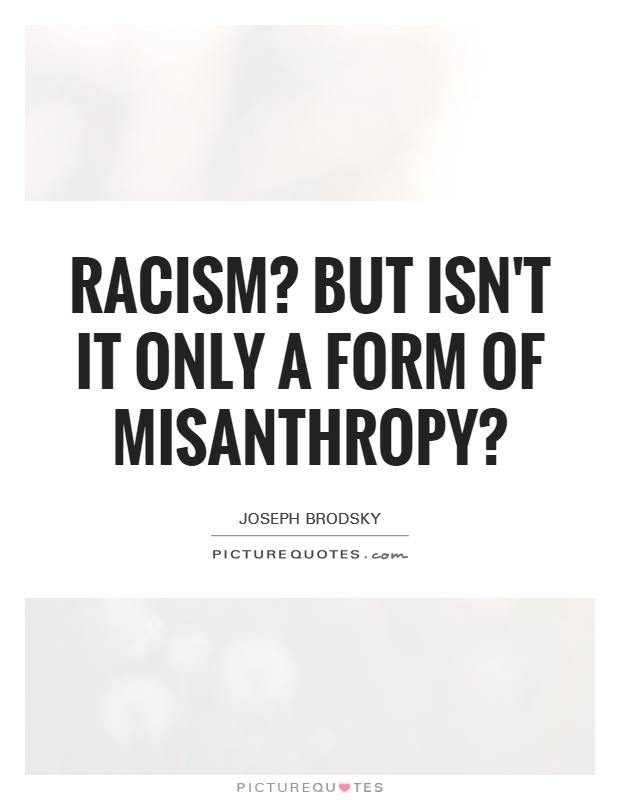
Racism? But isn't it only a form of misanthropy?
Joseph Brodsky, the renowned Russian poet and essayist, was a keen observer of human nature and society. In his works, he often delved into the complexities of human relationships and the darker aspects of the human psyche. One of the recurring themes in Brodsky's writings is the issue of racism and prejudice.In the context of Brodsky's work, the question of whether racism is simply a form of misanthropy is a thought-provoking one. On the surface, racism may seem like a manifestation of hatred towards a particular race or ethnicity. However, Brodsky's nuanced understanding of human behavior suggests that racism goes beyond mere hatred and stems from a deeper sense of alienation and fear.
Brodsky believed that racism is a symptom of a larger problem within society – a lack of empathy and understanding towards those who are different from us. In his essay "In a Room and a Half," Brodsky explores the idea that racism is rooted in a sense of insecurity and a need to assert one's own identity at the expense of others. He argues that racism is a form of misanthropy because it reflects a fundamental distrust of humanity and a fear of the unknown.
Brodsky's own experiences as a Russian Jew living in the Soviet Union shaped his views on racism and prejudice. He was acutely aware of the discrimination and persecution faced by minority groups, and he used his poetry and essays to challenge the prevailing attitudes towards race and ethnicity. Brodsky believed that true understanding and acceptance of others could only come through empathy and compassion, rather than through fear and hatred.

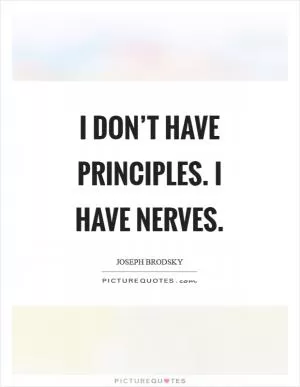
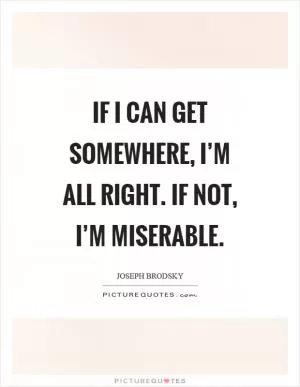


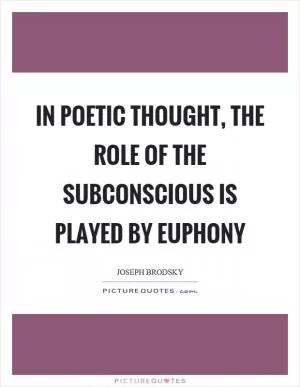





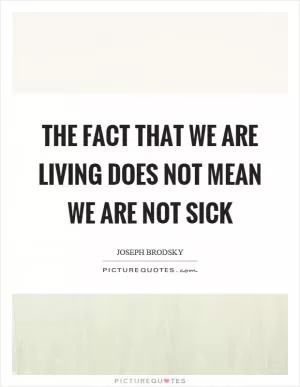
 Friendship Quotes
Friendship Quotes Love Quotes
Love Quotes Life Quotes
Life Quotes Funny Quotes
Funny Quotes Motivational Quotes
Motivational Quotes Inspirational Quotes
Inspirational Quotes